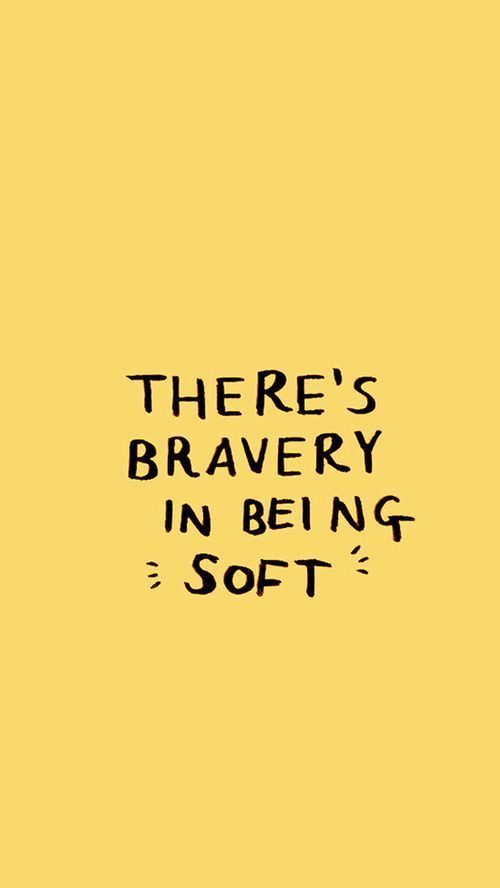In a world that values resilience in the form of toughness, the traits of gentleness and empathy are often seen as weaknesses. But psychology shows us that a soft heart—open to kindness, compassion, and vulnerability—requires incredible emotional strength. People with soft hearts face unique challenges, but they also possess a resilience and depth that allow them to connect deeply with others and stay true to their values.
Why A Soft Heart is Often Misjudged as Weak
Our society tends to associate strength with being emotionally guarded or unaffected by hardship. Those with soft hearts, however, show a different kind of strength. Instead of detaching from their emotions, they embrace them fully, experiencing joy, sorrow, empathy, and love deeply. This openness doesn’t mean they’re weak; in fact, it requires immense courage. To stay compassionate in a sometimes harsh world takes strength that few recognize at first glance.
Psychologist Kristin Neff, known for her work on self-compassion, explains that people who practice kindness toward themselves and others are not avoiding pain but learning to process it in a healthy way. “Compassion is not a relationship between the healer and the wounded,” Neff writes. “It’s a relationship between equals.” For soft-hearted people, this means recognizing the human experience in all its forms and viewing empathy as a strength, not a liability.
The Courage of Vulnerability
Vulnerability, one of the defining traits of a soft heart, is often misunderstood as a weakness. While some view vulnerability as exposing oneself to unnecessary hurt, psychologist Brené Brown, a leader in vulnerability research, says it’s actually a key source of courage. Brown describes vulnerability as “uncertainty, risk, and emotional exposure,” and notes that these are conditions necessary for true connection and growth.
This aligns with attachment theory, a concept introduced by John Bowlby, which shows that people with secure attachment styles are more open to experiencing vulnerability in relationships. Those with soft hearts are often naturally inclined toward secure attachment, which helps them form meaningful bonds. This kind of openness isn’t a lack of self-protection but rather an emotional foundation that gives them the strength to connect deeply and withstand life’s emotional storms.
Empathy as a Form of Strength
Empathy is a central quality for those with soft hearts, but it can be emotionally taxing. People with high levels of empathy are more sensitive to the feelings and experiences of others, making them more likely to experience empathy fatigue, a term used by psychologists to describe the exhaustion that can result from intense emotional connection. However, empathy also equips them with tools for resilience.
Daniel Goleman, author of Emotional Intelligence, explains that emotional intelligence—the skill of recognizing and managing one’s own emotions as well as others’—is often high in empathetic people. This emotional intelligence allows soft-hearted individuals to handle complex social situations and build meaningful relationships, all while protecting their inner balance.
They do this by developing healthy boundaries, a concept that psychologist and boundary expert Dr. Nedra Tawwab emphasizes as essential for well-being. Setting boundaries doesn’t make them less compassionate; rather, it helps them sustain their empathy and kindness without burning out. This balance between empathy and self-care shows a profound inner strength.
For those who feel soft-hearted and occasionally wrestle with self-doubt, exploring resources that nurture self-compassion and inner strength can be incredibly helpful. A wonderful recommendation is an article by Neha Paranjpe titled “3 Books for Soft-Hearted Souls Struggling with Self-Doubt.” In it, Neha shares three thoughtfully chosen books that guide readers on a journey to embrace their vulnerability and cultivate confidence. These reads are specially curated to offer encouragement, emotional insight, and a reminder that softness and self-worth can beautifully coexist. If you’re looking to deepen your self-awareness and affirm your gentle resilience, this article is a fantastic place to start.

Choosing Kindness Over Cynicism
In a world that can sometimes feel divisive, soft-hearted people choose to approach life with kindness. Psychologists have found that those who practice kindness and compassion report higher levels of happiness and reduced stress. Studies from the Greater Good Science Center show that acts of kindness boost well-being and contribute to emotional resilience, helping people maintain positivity in difficult times.
This choice to remain compassionate isn’t naive—it’s a deliberate decision. Soft-hearted individuals understand the world’s harshness but choose to approach it with empathy, showing that it’s possible to stay kind without sacrificing strength. “Kindness is the light that dissolves all walls between souls, families, and nations,” wrote psychologist Carl Jung, illustrating how compassion can break down barriers and foster true understanding.
The Psychological Impact of Living with a Soft Heart
Living with a soft heart brings many rewards and some challenges. Soft-hearted individuals often experience deeper, more meaningful relationships and a strong sense of purpose in their interactions with others. This aligns with the “broaden-and-build” theory developed by psychologist Barbara Fredrickson, which suggests that positive emotions like kindness and empathy help people build resilience, strong connections, and a broader perspective on life.
However, being soft-hearted can also feel isolating. In a society that sometimes prioritizes self-interest over community, soft-hearted individuals may feel misunderstood or even alienated. Despite these challenges, their empathy and commitment to compassion help them create a meaningful life that brings joy and purpose, not just to themselves but also to those around them.
Embracing a Soft Heart as a Powerful Choice
At its core, having a soft heart is about choosing empathy, kindness, and openness even when it’s not easy. People with soft hearts understand that true strength doesn’t come from closing oneself off or becoming emotionally detached. Instead, they believe in the power of compassion and know that remaining open to others, even in a harsh world, is one of the strongest things a person can do.
Carl Rogers, a prominent figure in psychology, beautifully captures this idea: “What is most personal is most universal.” For people with soft hearts, this means that their empathy and willingness to be vulnerable connect them to the shared human experience. They demonstrate that the strength of a soft heart lies not in avoiding life’s difficulties but in embracing them with courage, kindness, and resilience.
In the end, those who maintain a soft heart in a world that often prizes hardness demonstrate a unique strength—an unwavering commitment to empathy, kindness, and authenticity. They choose to remain open and vulnerable, not out of naivety, but from a deep understanding that true resilience comes from facing life’s challenges with compassion and integrity. This quiet courage not only enriches their own lives but also inspires others, showing that a soft heart is not a weakness but a profound source of strength that has the power to uplift, connect, and transform in ways that hardness alone never could.
For more insightful readings and the latest updates on e-commerce trends, keep an eye on our blog. Together, let’s explore the innovations that are transforming how we shop, one virtual experience at a time.




